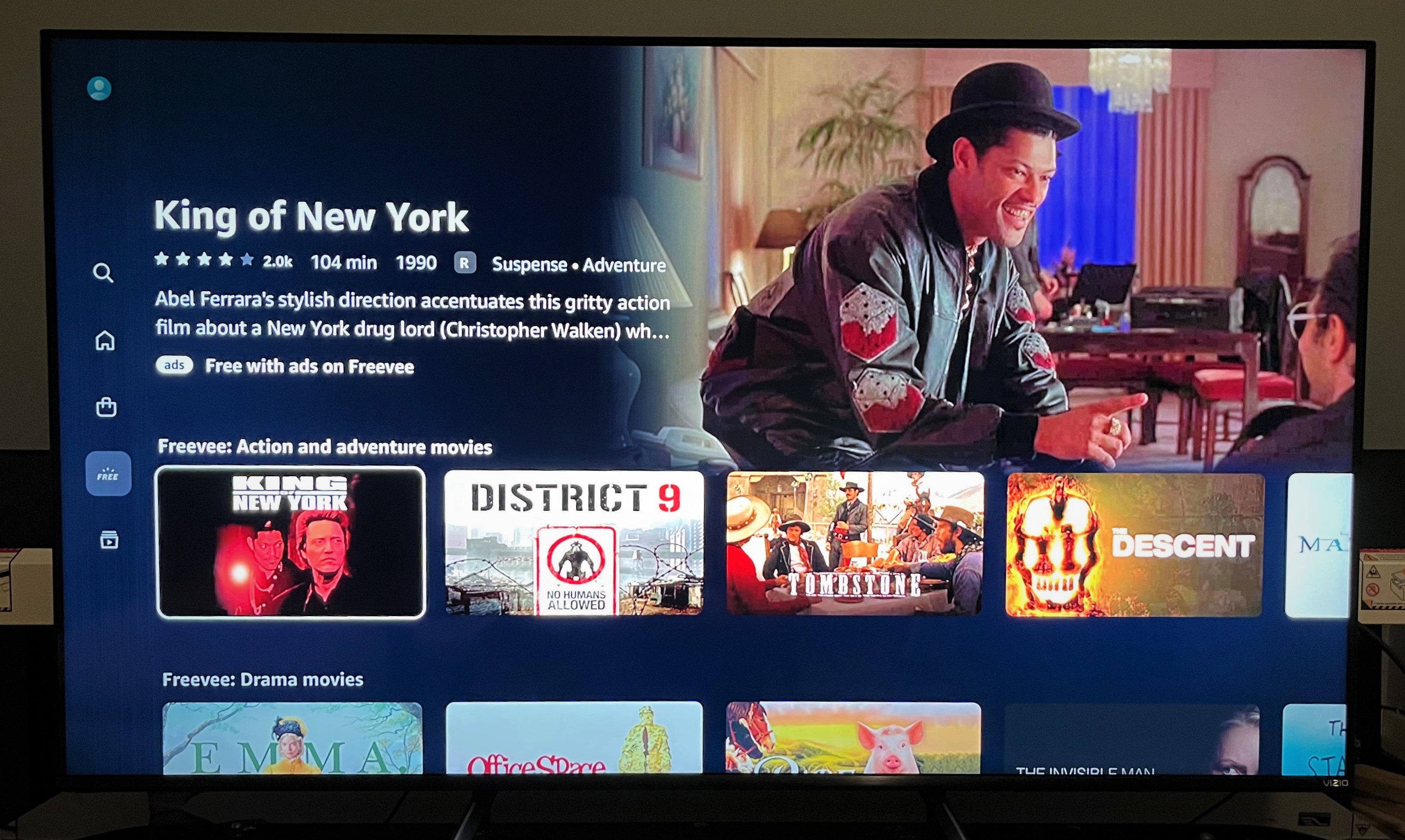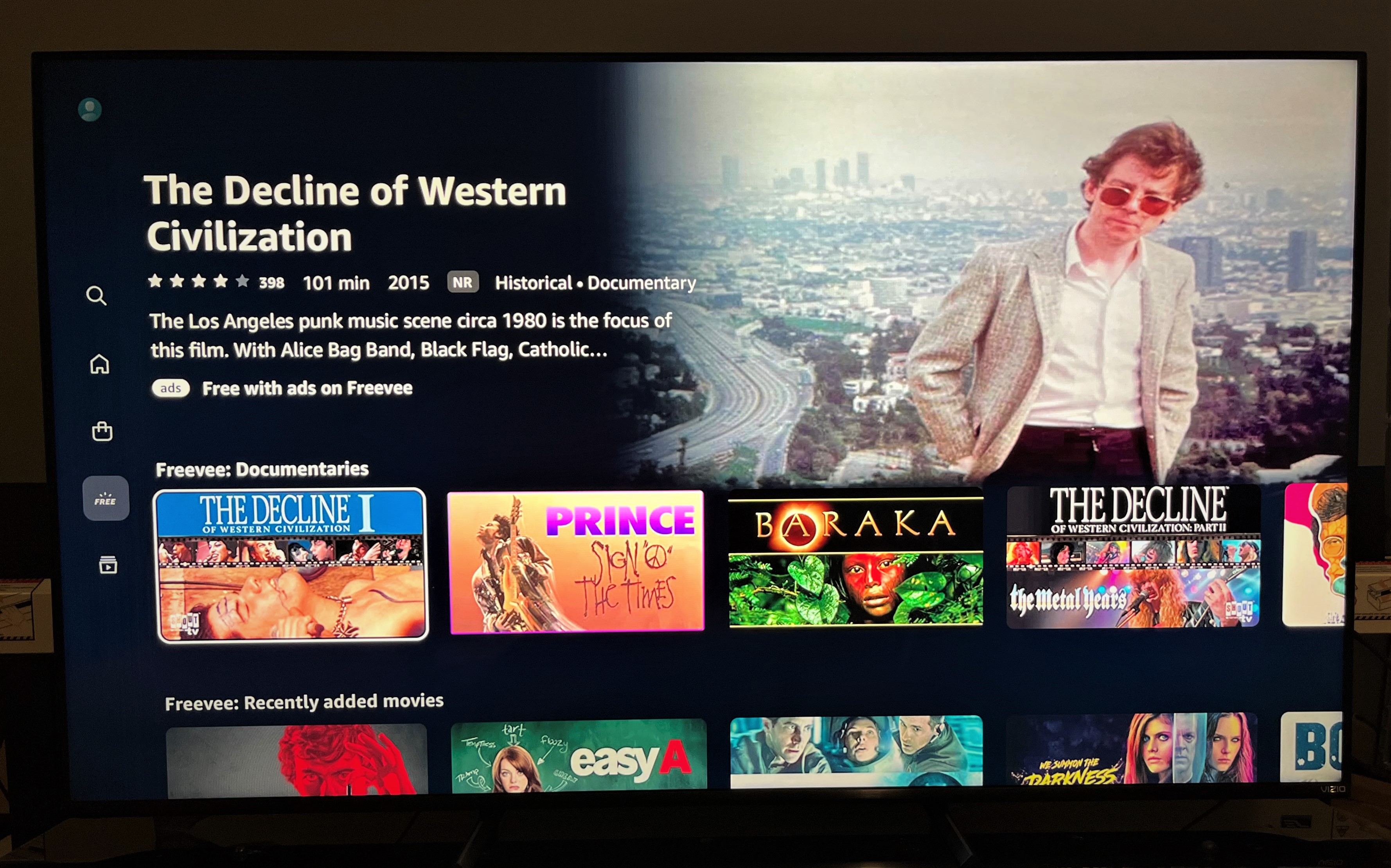Free ad-supported TV may be free to stream, but it’s not worth your time
Free TV with commercials is a decidedly mixed bag

Price inflation isn’t just making gasoline and groceries more expensive, it’s also having an impact on the cost of TV streaming subscriptions.
Back in January, Netflix kicked off the new year by raising prices across all of its streaming plan tiers. That move was followed by Disney+ and Hulu, both of which have announced that price jumps are coming in December – a steep 40% in the case of Disney+.
Such price hikes are bad news for cord cutters, many of whom turned to streaming as a more affordable, and a commercial-free, alternative to cable and satellite TV. To retain those subscribers, and to attract new customers as well, streamers are introducing ad-supported tiers: Hulu and HBO Max currently have them in place, while Disney+ and Netflix both have such tiers in the works that are scheduled for introduction later this year.
Free ad-supported TV
Along with ad-free and ad-supported streaming plans, free ad-supported (FAST) services offer another option that is, as the name implies, completely free.
Apps like Pluto TV, Tubi, and Xumo provide a grid-style interface for browsing TV shows and movies. The programming you’ll find within is typically a bewildering mix of old and new: Gunsmoke and Fear Factor on Pluto TV; The Johnny Carson Show on Tubi alongside live network news. On the movie front, you’ll find everything from mind-numbingly bad ‘90s comedies to movies like Inception and Office Space. What they all share in common is that they’re free to stream, as long as you don’t mind a regular minute or two block of commercial interruptions throughout.
Streaming hardware providers also have their own FAST offerings. Roku has the Roku TV Channel, which additionally provides some original programming created by the company, while Amazon has Freevee, a portal that benefits to a degree from the wide range of original content available on Amazon Prime Video.
TV makers, too, have been adding FAST portals to their sets, which are usually accessible via an easy button press on the remote control. Vizio and Samsung were early getting into FAST via their respective WatchFree+ and Samsung TV Plus portals, and they were recently joined by LG with its own LG Channels. Each of these offers hundreds of channels with a mix of scheduled and on-demand shows and movies.

Free ad-supported TV may be free, but…
I recently checked out Amazon Freevee on a Vizio MQX series TV I’m testing (the Prime Video smart TV app also offers Freevee), and I was surprised by the range and quality of the offerings. Once I started streaming King of New York, a favorite cult movie released in 1990, I was further surprised by the image quality, which was not bad at all for something that was being offered up for free.
The opening of King of New York is beautifully shot and completely absorbing, with regular cuts to the ice-cold countenance of just-released drug kingpin Frank White (played by Christopher Walken) as he drifts slowly from prison back to the city in a decked-out limo.
All was going fine until – the commercials! Three minutes of them! Not only did it kill the vibe set by the movie’s opening sequence, but it made me want to stop watching altogether. This is why we buy 4K Blu-ray players and discs of movies we love, and why we subscribe to ad-free streaming services that let you watch movies straight through uninterrupted.
Also, while the image quality of the movies on Freevee and Vizio’s WatchFree+ portal was generally very good, with most offerings in widescreen high-definition, I can’t say that was the case with everything I checked out during my free TV streaming binge. Tubi, for example, may have Inception, but the high level of video compression that service uses to squeeze in as many “channels” as possible meant that the picture was riddled with noise and other digital artifacts.
Ultimately, FAST is fine because it’s free – you’re getting something for nothing. But it’s also true that, after spending a good amount on your TV, it’s now making money off of you. Set and streaming box makers get a cut of the ad revenue generated by FAST viewing, so the more you take advantage of it, the greater their benefit. TV manufacturing is a low-margin business – increasingly so – and FAST is one way they are able to maximize their profits.
Beyond that, there are the issues of a bad experience due to poor picture quality and of time wasted watching commercials – time that you’ll never get back. Maybe the best solution is to spend judiciously on the ad-free streaming services you’ll regularly use, and to supplement them with FAST. But only when absolutely necessary.
Get daily insight, inspiration and deals in your inbox
Sign up for breaking news, reviews, opinion, top tech deals, and more.

Al Griffin has been writing about and reviewing A/V tech since the days LaserDiscs roamed the earth, and was previously the editor of Sound & Vision magazine.
When not reviewing the latest and greatest gear or watching movies at home, he can usually be found out and about on a bike.